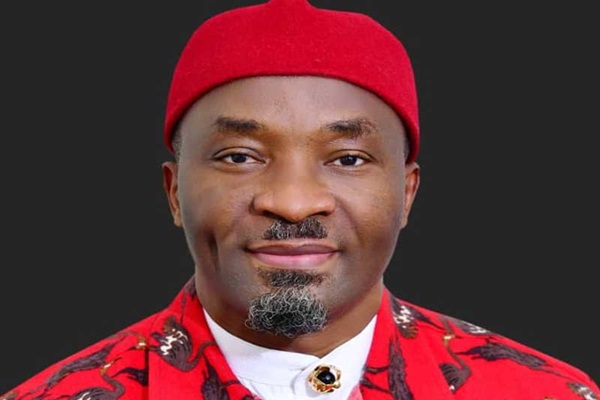Deputy Speaker of the House of Representatives, Benjamin Kalu has said that the decision of President Bola Ahmed Tinubu to remove subsidy on Premium Motor Spirit (PMS) otherwise known as petrol, saved about 10 billion dollars for the country in 2023.
Kalu who spoke at a meeting with some investors and a group of scholars at Oxford University in London also disclosed that efforts by the Tinubu government to promote economic growth and development have led to a significant increase in Foreign Direct Investment (FDI) into the country worth about $6.4 billion in 2024.
A statement signed by the Chief Press Secretary, Levinus Nwabughiogu quoted the Deputy Speaker as saying that the policies of the government have also led to a 22% increase in dollar remittances from Nigerians in the diaspora, totalling $28 billion in 2024.
Kalu who is the head of a delegation from the House to the ongoing UK-Nigeria Parliamentary Strategic Dialogue, including Chris Nkwonta, Ginger Onwusibe and Ibe Okwara spoke on four key areas of politics, security, economy and development.
Others at the parley included Dr. Christopher Nwadiba, Fellow at Oxford University; Dr. Dyedra Morrissey, Lecturer at Said Business School, Oxford University; Dr. Nwirivu Rupara, Engr. Jackson Offor and Ms. Sandra Elias, all of Oxford University.
According to the Deputy Speaker, the subsidy removal has enabled the government to redirect funds to critical sectors such as healthcare, education, and infrastructure, adding that the economic gains from the subsidy removal have been complemented by other notable achievements, including a 3.19% increase in Nigeria’s GDP in Q2 2024.
He explained that Tinubu’s administration has made significant strides in the areas of politics, security, economy and development which reflected the Legislative Agenda of the 10th House of Representatives.
Kalu highlighted the strengthening of democratic institutions through legislative reforms, including the passage of the South East and North West Development Commission Acts.
He stressed that the government has also enhanced electoral integrity through technology-driven processes, leading to increased political engagement among Nigeria’s youth.
On security, the Deputy Speaker said there has been a 47% reduction in incidents of banditry in the North-West between Q2 2023 and Q4 2024, adding that collaborative operations between the Nigerian Armed Forces and regional counterparts have resulted in the capture of over 1,500 insurgents in the Lake Chad Basin.
In the development sector, the Deputy Speaker said that the government has launched various initiatives aimed at promoting technological advancement and innovation.
He revealed that the National Digital Economy Policy (2023-2030) will increase internet penetration from 49% to 70% by 2027 adding that the launch of the Nigeria Start-Up Act has also spurred tech innovation, securing over £300 million in venture capital funding in 2024.
Kalu assured that more economic opportunities abound in Nigeria for investors, asking them to consider the country as the next business destination, while calling for international collaborations to strengthen socio-economic advancements in the country.



